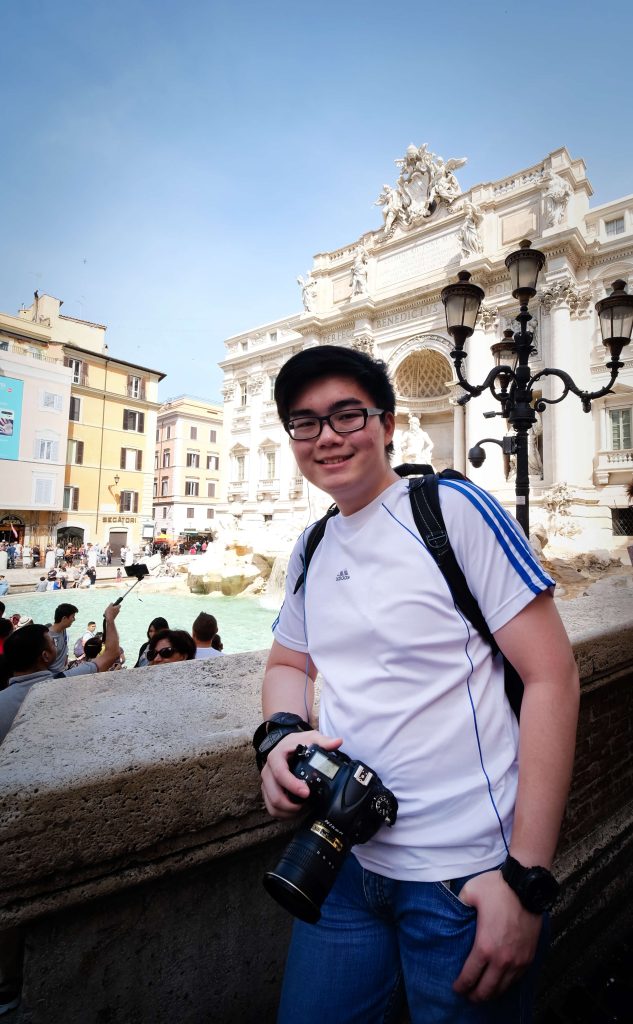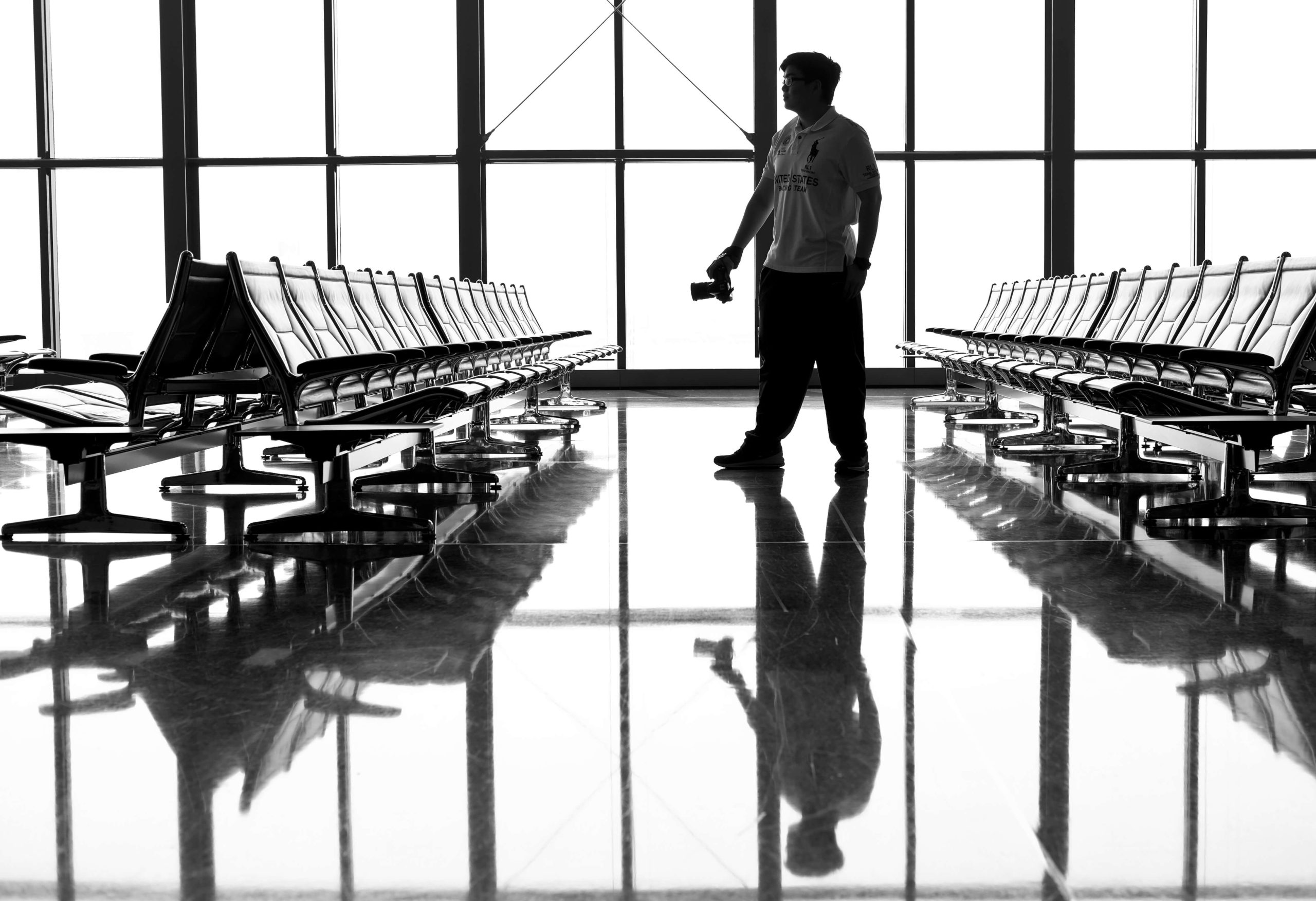Kang Joon Kiat
[BSc (Hons) 2021]
My four years studying physics at NUS has transformed my thinking in multiple ways. Most obviously, it has taught me the philosophies behind converting real world problems into mathematical models that are analytically tractable. The process has trained my skills of abstraction which I expect will remain in demand even as artificial intelligence takes over more and more of the technical world. Another notable ‘landmark’ of my university journey was the exposure to the idea of epistemic and ontic knowledge and its relevance in the pursuit of scientific knowledge. Curiously, it seems like there is a finishing line to the “why” questions asked in physics. At the most fundamental level, we can no longer, for example, ask why quantum particles have randomness built into their behaviour or why gravity is functionally equivalent to warped geometry. The best physics can do is develop a robust description of how nature behaves. This realisation helped me to contextualise what I have been learning over the four years and gave me a greater appreciation of how knowledge is acquired.
The most important and pragmatic way the university education has changed me was in my adopting a better working style. The challenging physics curriculum forced me to develop a more effective work philosophy to deal with the rigour and time constraints of the course. The course material was difficult. There is no other way to put it. Analysing physical problems as mathematical problems is a novel experience for most people and it takes time to get used to. The calculations involved were often difficult and arduous, especially in the first two years when we had not yet been properly equipped with the mathematics needed to perform the said calculations. As a result, I often took an extraordinary amount of time to complete the assignments and tutorials.
Near the beginning of my second year, I had to overhaul the way I did my work just to keep up with the courses. Before, my approach had been to always never give up and to believe that with sufficient struggling, any difficulty in academic work could be overcome. However, just as a certain straw-hatted rubber man was told before he went on a two-year training arc, willpower alone is not always enough. Endless struggling might result in success, but it would always be at the cost of fatigue and time that could (and often should) have been spent on other tasks. Instead, I switched my approach that prioritised work done per unit time per unit effort (after all, energy density and not energy per se is often the key quantity in physics). Everyone has a finite amount of time and stamina per day so it is important to maximise the returns on investment. Knowing when to let go and come back another time after struggling long enough is important. If not, one runs the risk of becoming too stuck on one approach of thinking that might not even lead to a solution. Coming back with a revitalised mind and fresh perspective can often deliver results faster and with less effort. In the grander scheme of things, this kind of flexibility in re-evaluating one’s approach to challenges in life based on the cold, hard facts of what works and what does not is probably an important skill to pick up. As comfortable as we may become with our default way of life, we must also have enough humility and self-awareness to recognise when what we are comfortable with is no longer valid, because the conditions when they were valid have long passed.

My four years studying physics at NUS has transformed my thinking in multiple ways. Most obviously, it has taught me the philosophies behind converting real world problems into mathematical models that are analytically tractable.
Kang Joon Kiat
Near the beginning of my second year, I had to overhaul the way I did my work just to keep up with the courses. Before, my approach had been to always never give up and to believe that with sufficient struggling, any difficulty in academic work could be overcome. However, just as a certain straw-hatted rubber man was told before he went on a two-year training arc, willpower alone is not always enough. Endless struggling might result in success, but it would always be at the cost of fatigue and time that could (and often should) have been spent on other tasks. Instead, I switched my approach that prioritised work done per unit time per unit effort (after all, energy density and not energy per se is often the key quantity in physics). Everyone has a finite amount of time and stamina per day so it is important to maximise the returns on investment. Knowing when to let go and come back another time after struggling long enough is important. If not, one runs the risk of becoming too stuck on one approach of thinking that might not even lead to a solution. Coming back with a revitalised mind and fresh perspective can often deliver results faster and with less effort. In the grander scheme of things, this kind of flexibility in re-evaluating one’s approach to challenges in life based on the cold, hard facts of what works and what does not is probably an important skill to pick up. As comfortable as we may become with our default way of life, we must also have enough humility and self-awareness to recognise when what we are comfortable with is no longer valid, because the conditions when they were valid have long passed.

Right now, I am beginning to pursue a PhD in physics, specifically on studying the properties of low dimensional solid state materials. The bulk of the work will be experimental: optimising the conditions for fabricating materials and then running experiments to measure the various properties. However, I also foresee myself venturing into computational work in the next four years since advances in solid state physics are heavily dependent on the interplay between simulated and experimental results. Gaining competence in both experimental and computational skills will certainly be beneficial if I were to stay in a technical field having obtained my PhD. The training I gained during my undergraduate years gives me confidence that I will be able to pick up new knowledge I need for my PhD work. At the very least, the struggles I had with assignments have given me a strong enough foundation in mathematics to read textbooks without being lost all the time!
Presently, the world is in a far from ideal state to graduate into. Carving one’s niche is hard currently with the world abandoning its status quo as it tries to regain its balance. I cannot claim to have a solid grasp of how the employment markets have been affected by the pandemic being in my relatively isolated academic research environment. However, it is plain observation that most workplaces have been forced to make quantum leaps in the way they operate, adopting technologies and operating philosophies that would have otherwise taken decades to implement, if at all. It is very possible that these changes will remain in place even after the pandemic has passed. Or perhaps the changes might even continue to accelerate. On the surface, it may seem joining the workforce when it is in such a flux is daunting. However, I believe that flux creates new demands that need to be met. This is therefore a prime opportunity to demonstrate one’s adaptability and to search for the newly created niches that one could just fit in.
As part of an age group that grew up alongside the evolution of the internet from dial-up to fibre optics, I believe my peers and I are well adapted to embrace the pandemic-driven boom in infocomm technology. I, for one, am excited to see streaming entering the mainstream and the shift towards remote working for tasks that do not require physical presence. The increased adoption of such technologies will demand greater computer literacy on top of the usual competencies demanded by a job. The fact that I was able to adapt to academic life in university gives me confidence that I will once again be able to adapt to the changing landscape of the working world. At my end, I feel it would be a waste of my past efforts and the efforts that others have put into helping me if I let myself stall just because the way forward looks different compared to four years ago.
